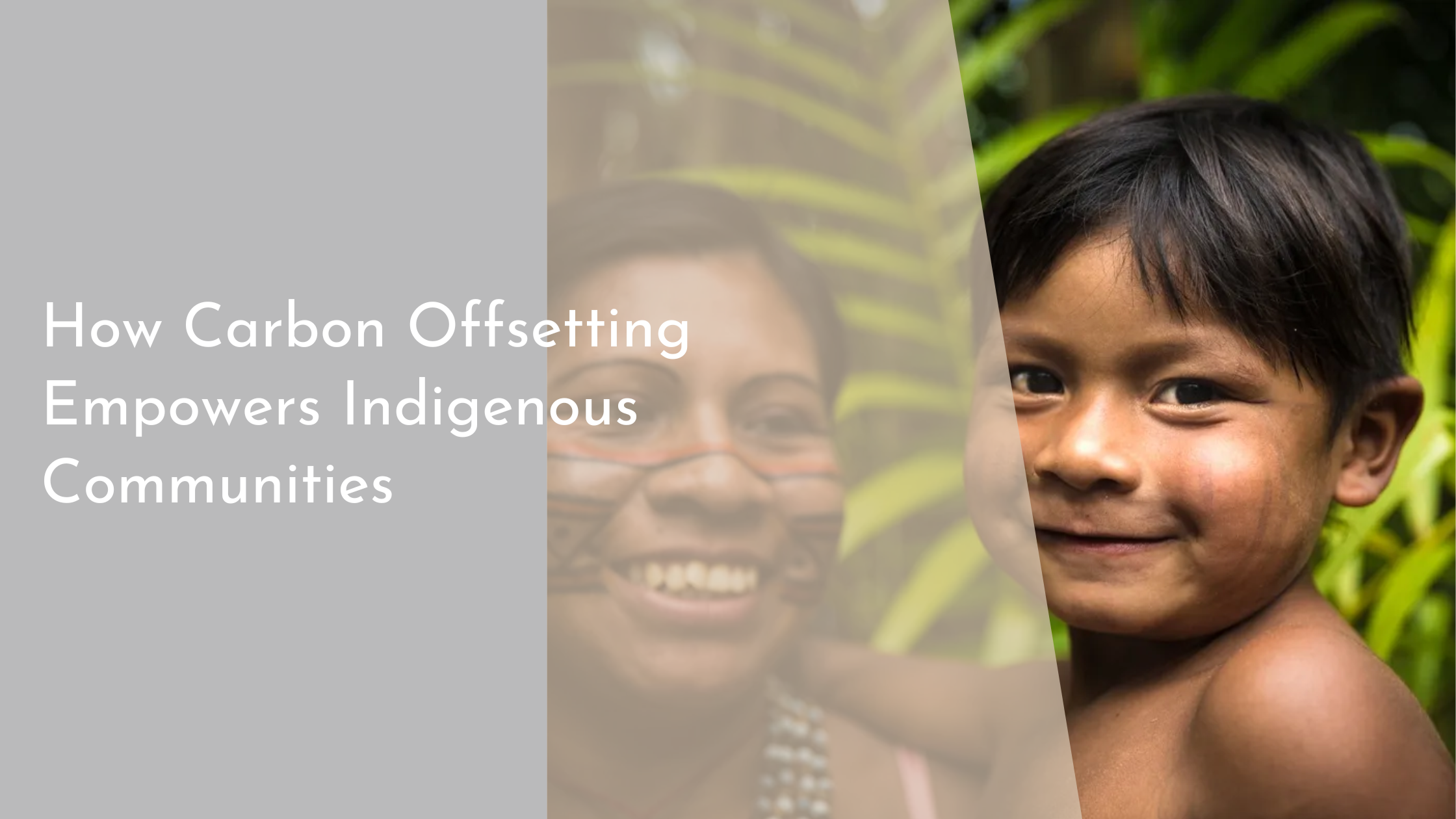How Carbon Offsetting Empowers Indigenous Communities
In the face of climate change, carbon offsetting has emerged as a powerful tool for mitigating environmental impact. Beyond its primary purpose of reducing carbon footprints, carbon offsetting also has the potential to drive socio-economic benefits for Indigenous communities worldwide. These communities, often the stewards of critical ecosystems, play a pivotal role in global conservation efforts. This article explores how carbon offsetting empowers Indigenous communities, highlighting their essential contributions, successful case studies, and the challenges they face as well as future prospects for deepening their involvement in this eco-friendly initiative.
Understanding Carbon Offsetting and Its Purpose
Carbon offsetting is a practice where individuals or corporations invest in environmental projects to compensate for their carbon emissions. These projects often include reforestation, renewable energy initiatives, and conservation efforts that either absorb existing carbon dioxide from the atmosphere or prevent new emissions. The ultimate goal of carbon offsetting is to achieve carbon neutrality, which helps slow the impact of climate change by balancing out the carbon equation. This initiative not only benefits the planet by reducing atmospheric CO2 but also provides a unique opportunity for economic and social development in communities involved in these projects.
While the primary aim of carbon offsetting is environmental protection, it also serves a dual purpose by generating socio-economic benefits for local populations. Indigenous communities, in particular, are uniquely positioned to benefit from carbon offset projects as they often inhabit and manage large areas of forests and natural landscapes. By participating in these initiatives, Indigenous groups can gain access to new income streams, better resource management systems, and improved living standards, all while contributing to global efforts to combat climate change.
The Role of Indigenous Communities in Conservation
Indigenous communities have long been recognized as vital custodians of the Earth’s biodiversity. With their profound understanding of local ecosystems, these communities employ traditional knowledge and sustainable practices to manage and protect their natural resources. Their involvement in conservation efforts is crucial for the success of carbon offset projects, as these projects often rely on the preservation and restoration of forests and other natural habitats. By integrating Indigenous practices and perspectives, carbon offset initiatives become more culturally appropriate and effective, leading to greater environmental and social outcomes.
In addition to their ecological expertise, Indigenous communities bring a valuable ethical dimension to carbon offset projects. Their holistic worldviews emphasize the interconnectedness of all life, promoting stewardship and respect for nature. This mindset aligns with the objectives of carbon offsetting, fostering a deeper commitment to sustainability among participants. As a result, Indigenous involvement in carbon offset projects not only enhances environmental conservation but also empowers these communities by validating and supporting their cultural knowledge and practices.
Successful Case Studies of Empowerment Through Offsetting
One exemplary case of empowerment through carbon offsetting is the Suruí Forest Carbon Project in Brazil. This initiative, led by the Paiter-Suruí Indigenous people, was the first recognized Indigenous-led REDD+ (Reducing Emissions from Deforestation and Forest Degradation) project. By protecting their rainforest territory from deforestation, the Suruí community has successfully generated carbon credits, which have provided vital funding for local development projects, education, and healthcare. This project not only illustrates the potential for Indigenous-led carbon offsets but also highlights the role of traditional knowledge in achieving sustainable environmental goals.
Another successful example is the Yaigojé Apaporis REDD+ Project in Colombia, where Indigenous communities have taken the lead in conserving their ancestral lands. The project has resulted in significant reductions in deforestation rates, contributing to natural carbon sequestration and biodiversity conservation. The revenues from carbon credits have empowered these communities by funding initiatives such as community governance, cultural preservation, and livelihood improvement. Both the Suruí and Yaigojé Apaporis projects demonstrate the transformative power of carbon offsetting in fostering Indigenous empowerment and environmental stewardship.
Challenges and Future Prospects for Indigenous Involvement
Despite the successes of some carbon offset projects, Indigenous communities still face significant challenges in fully capitalizing on these opportunities. Issues such as land tenure insecurity, lack of access to technical expertise, and limited financial resources often hinder their participation in carbon offsetting initiatives. To overcome these barriers, concerted efforts are needed to ensure that Indigenous voices are included in decision-making processes and that they receive the necessary support to manage and benefit from carbon projects effectively.
Looking ahead, the future prospects for Indigenous involvement in carbon offsetting appear promising. As global awareness of the importance of Indigenous stewardship grows, there is a greater push for inclusive and equitable approaches to environmental conservation. By collaborating with Indigenous communities and respecting their rights and knowledge, the carbon offsetting industry can unlock untapped potential for both climate action and community empowerment. With the right support and partnerships, Indigenous communities can lead the way in creating a more sustainable and just future.
Carbon offsetting presents a unique opportunity to address climate change while empowering Indigenous communities who are crucial custodians of our planet’s ecosystems. By involving Indigenous people in these initiatives, we not only enhance the effectiveness of conservation efforts but also promote social and economic empowerment for these communities. As we continue to refine and expand carbon offset strategies, it is essential to prioritize Indigenous involvement, ensuring that their voices are heard and respected. In doing so, we can foster a more inclusive and sustainable approach to environmental stewardship that benefits all of humanity.

